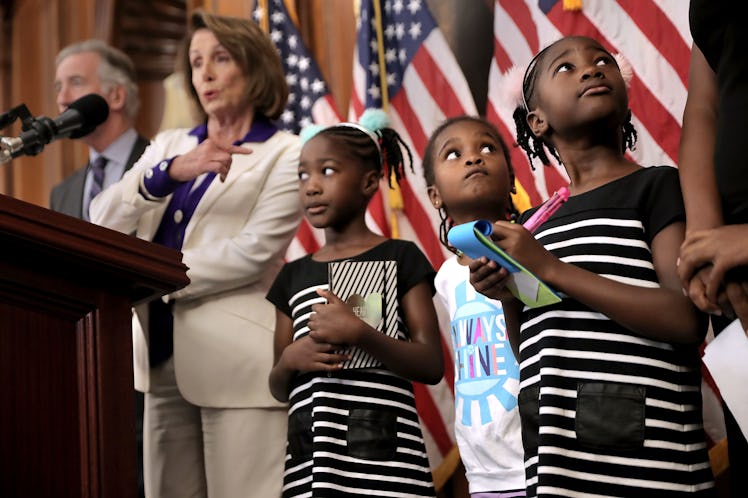
Here's Why CHIP Is Important To Millions Of Children Without Health Care
Over the past three months, one of the most important political subjects in America has revolved around four letters: CHIP. If you're wondering what CHIP is, don't worry. Plenty of people — especially those who either don't have children, or who do have children but already provide them with health coverage — are likely to not have known what CHIP is, especially before September.
CHIP stands for the "Children’s Health Insurance Program." It is best described by HealthCare.gov, the government-run website where Americans can enroll in health care plans under the Affordable Care Act and other health services sponsored by the federal government.
"CHIP provides low-cost health coverage to children in families that earn too much money to qualify for Medicaid," the website says. "In some states, CHIP covers pregnant women. Each state offers CHIP coverage, and works closely with its state Medicaid program."
Multiple reports put the number for the amount of children covered by CHIP at around 9 million kids. When those kids receive coverage, their families pay a rate that is guaranteed to not exceed a certain portion of their yearly income.
"Routine 'well child' doctor and dental visits are free under CHIP," the government's health care site says. "But there may be copayments for other services. Some states charge a monthly premium for CHIP coverage. The costs are different in each state, but you won’t have to pay more than 5% of your family's income for the year."
CHIP's coverage helps provide immunizations, inpatient and outpatient hospital care, prescriptions, and other services.
In order for CHIP to be funded, Congress has to write legislation authorizing the program — which dedicates a certain amount funds to the program – in order to keep it running. The last time Congress reauthorized the program was in 2015, with a Republican Congress under former President Barack Obama. Back then, the legislation passed by Congress mandated that CHIP be funded for two years.
Those two years came to an end this past September. When that end arrived, the Republican-led Congress did not reauthorize the program. At the same time, Congress has not passed a permanent budget to fund the government for a full fiscal year.
Instead, Congress has been temporary spending bills. First a three-month budget, then, most recently, a two-week budget, which avoided a government shutdown. Each time, however, funding for CHIP was not included in the temporary measure.
To be clear, states that administer CHIP still had money to facilitate the program's service. As time has gone by, however — and as Congress focused its efforts on tax reform — the threat of CHIP running out of money, particularly without a new funding bill in sight, only grew by the day.
On Thursday, Dec. 14, CNN reported that 16 states would run out of funding for CHIP by the end of January 2018, citing a study for the Kaiser Family Foundation. On Tuesday, Dec. 19, The New York Times reported that two states, Colorado and Connecticut, have sent letters to families with children coverage by CHIP, warning them that the program could soon end.
"Congress has not acted to continue the funding, so we must plan to end the CHIP program on Jan. 31," a letter from the the Connecticut Department of Social Services, according to the Times.
On Wednesday, Dec. 20, Senators Lamar Alexander (R-TN) and Susan Collins (R-ME) implied in a letter to Senate Majority Leader Mitch McConnell that the Senate was going to only discussing funding CHIP after the new year.
However, with a new deadline for securing a federal budget coming Friday, Dec. 22, the House of Representatives unveiled a new funding bill a day before. That funding bill includes money for CHIP, to the tune "$2,850,000,000 for the period beginning on October 1, 2017, and ending on March 31, 2018."
House Speaker Paul Ryan told CNBC, "We're just bringing a clean, what we call vanilla CR — no games, no sneaky things. Just a continuing resolution to get us through this moment to get us into next year. It's as clean and simple as possible."
Now, the question is whether the Senate will pass the spending bill exactly how the House wrote it. If it does, CHIP will receive new funding. If it doesn't, what happens next is unclear, which is what the future has been for CHIP for the past couple of months.